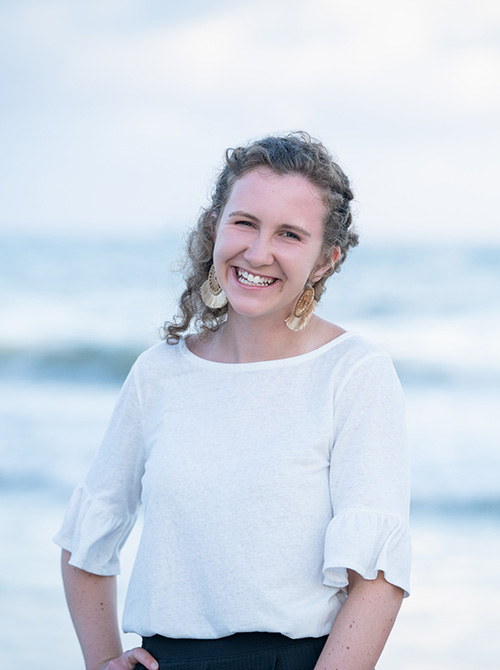by Maddie Pannell, 2021 Undergraduate Summer Research Fellow in Lived Theology
Last week, I was puzzling over a couple of photos I wanted to post on Instagram. Was this an authentic reflection of myself? Was I trying too hard? I was encouraged by one of the Someday is Here (SIH) podcast episodes I listened to as part of my research for the Project on Lived Theology. SIH podcast host Vivian Mabuni interviewed photographer and author Laura Izumikawa on Episode 25. Izumikawa, describing the principles that drive her work and leadership, said, “What really lasts and is evergreen is genuineness, openness, vulnerability, and being the best you can be, and I’ve found that people are oddly attracted to that and want more of that.”
As I’ve listened to the SIH podcast over the past two months, the many different women that Mabuni interviewed presented their own “evergreen,” authentic selves. They talked freely about their identities, passions, families, and dreams—“storytelling,” as many of them called it. This kind of storytelling is distinct from other kinds of narrative. These “stories” are not fictive nor do they exist independently of their author. Rather, the storytellers are embodied in their stories. Stories conventionally put up a facade, create a sense of something unreal and fantastic. These stories, though, are tellings of who they are at their very gritty, uncovered, and unfiltered core; they tell the path from whence the teller came and the obscure yet hopeful road ahead. They simultaneously deconstruct and construct: tearing down image and pretense while building wholeness and truth in identity.
That does not mean these stories are themselves truth. I hesitate to use “truth-teller” as a synonym for “storyteller,” though I heard several women use that term during their interviews with Mabuni. The stories, though grounded in real personal experience, are inherently subjective and circumstantial; truth is decidedly objective and transcends circumstance. In this regard, I agree with many theologians’ critiques of the relativism of the narrative theological approach.
As we engage in theological considerations of truth, particularly in lived theology, we miss something significant if we disregard storytelling, specifically the practice of telling our own stories, the stories of our identities and personhood. In this sense, storytelling is a description and explanation of identity; identity is how we locate and articulate our presence. Presence is us, ourselves, our unique, worthy, and valuable expression of God’s image in the world. As such, presence is essential to knowing, experiencing, and communing with God.
Each of us cannot help but experience the world relatively. It is through the act of telling our stories that we realize ours is not the singular story or perspective, not the singular truth. In this way, storytelling can actually combat relativism and contribute to the revelation of truth by facilitating connection. The existence of commonalities alongside differences illuminates objective realities. In this space, the first, most fundamental truth illuminated is presence because regardless of any circumstance, we all hold value as God’s image bearers. Our presence is worthy.
Read Maddie’s first blog post here.
Learn more about the 2021 Undergraduate Summer Research Fellowship in Lived Theology here.
The Project on Lived Theology at the University of Virginia is a research initiative, whose mission is to study the social consequences of theological ideas for the sake of a more just and compassionate world.

